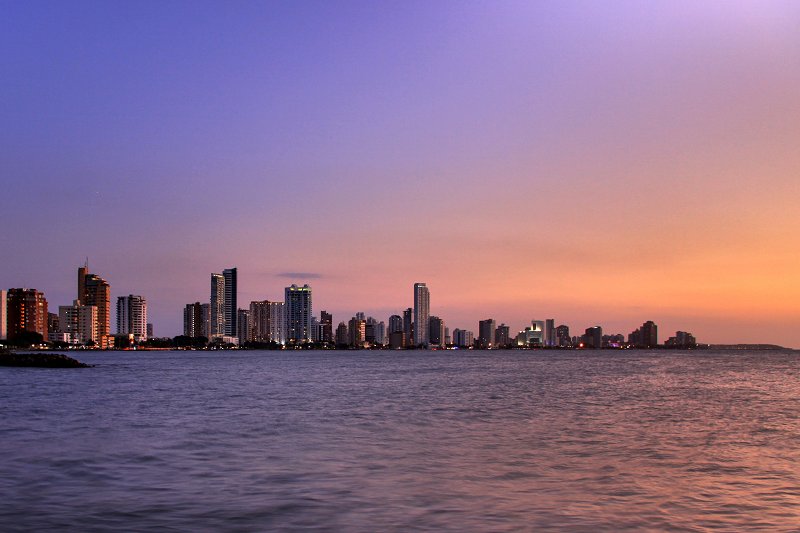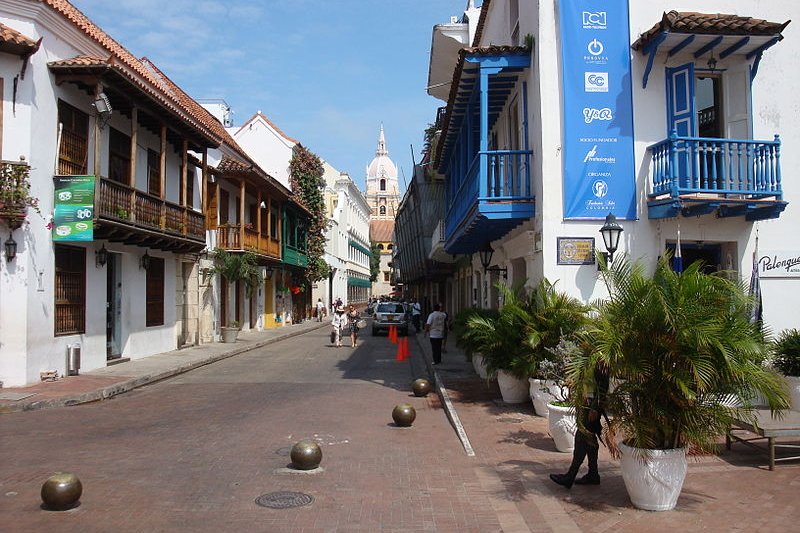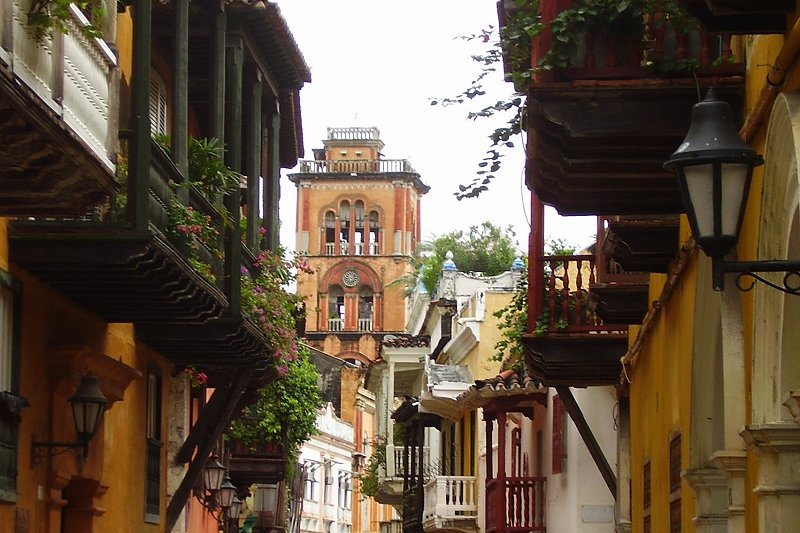 Sunset at Bocagrande in Cartagena, Colombia
Sunset at Bocagrande in Cartagena, ColombiaSource: https://commons.wikimedia.org/wiki/File:68_-_Carthag%C3%A8ne_-_D%C3%A9cembre_2008.jpg
Author: Martin St-Amant

Cartagena is a city in the Bolívar Department of Colombia. It is the biggest of the cities named Cartagena (there are also Cartagena, Spain, the city which gave it its name, and Cartagena, Chile). To differentiate it from the rest, it is often called Cartagena de Indias, meaning Cartagena of the Indies.
Cartagena is today a popular resort city. Covering 572 sq km (220.9 sq mi), it has a population of 893,000 people, making it the fifth largest city in Colombia. Today it has a well-preserved old city which is encircled by a city wall. The area was inscribed as a World Heritage Site since 1984.
 Cartagena, Colombia
Cartagena, ColombiaSource: https://commons.wikimedia.org/wiki/File:Carthag%C3%A8ne_des_Indes.jpg
Author: Initsogan

The Cartagena area has been inhabited since pre-Columbian times, with various cultures occupying the area as early as 7,000 BC. When the Spanish arrived in the 16th century, the natives were of the Karib, Malibu and Arawak language families.
After a couple of unsuccessful attemps to establish a colony in the area in 1506and 1517, the Spanish left the area well alone, prefering to establish settlements on the islands of Hispaniola and Cuba. It was only in 1533 that Spanish commander Pedro de Heredia founded Cartagena, naming it after its namesake in Spain.
In 1741 British admiral led a major offensive to capture Cartagena. The British side had 23,600 soldiers, overwhelmingly outnumbering and Spanish with only 6,000 men. Yet they attack was repelled by the Spanish and natives led by commander General Blas de Lezo y Olavarrieta. Bad weather, torrential rain and yellow fever all contributed to heavy British casualties.
 Calle de San Agustín, Cartagena
Calle de San Agustín, CartagenaSource: https://commons.wikimedia.org/wiki/File:Calle_de_San_agustin.JPG
Author: Einer Rivera

Today Cartagena is a modern well-developed city. It has the tallest skyscraper in Colombia, the 58-story Torre de la Escollera completed in 2007. The city experiences a tropical wet and dry climate. Temperatures are fairly constant throughout the year, ranging from a low of 23.2°C (73.8°F) in January to a high of 31.9°C (89.4°F) in July and August. October is the wettest month, receiving 244 mm (9.61 in) of rain while February and March are very dry, with only 1 mm (0.04 in) of rain.
Part of the inner city of Cartagena is now a World Heritage Site. For details, go to Cartagena World Heritage Site.
Visiting Cartagena
The Rafael Núñez International Airport (CTG), the second biggest airport in Colombia, receives flights from Bogotá, Bonaire, Bucaramanga, Cúcuta, Curaçao, Fort Lauderdale, Medellín, Miami, Montería and Panama City, among others.Places of Interest in Cartagena
- Castillo de San Felipe
Fortress designed by Dutch engineer Richard Carr and built by the Spanish in 1657. - Iglesia de San Pedro Claver
Church honoring San Pedro Claver, the first person from the New World to be made a saint. - La Popa
Hill in Cartagena offering a splendid view of the harbor. - Palacio de la Inquisición
The place where the Spanish Inquisition judged, convicted and tortured men for crimes against the Catholic faith. Today it is a museum. - Walled City of Cartagena
Well-preserved buildings from the Spanish colonial times. Entrance is thorugh the Clock Tower building.
 Latest updates on Penang Travel Tips
Latest updates on Penang Travel Tips

Copyright © 2003-2025 Timothy Tye. All Rights Reserved.

 Go Back
Go Back